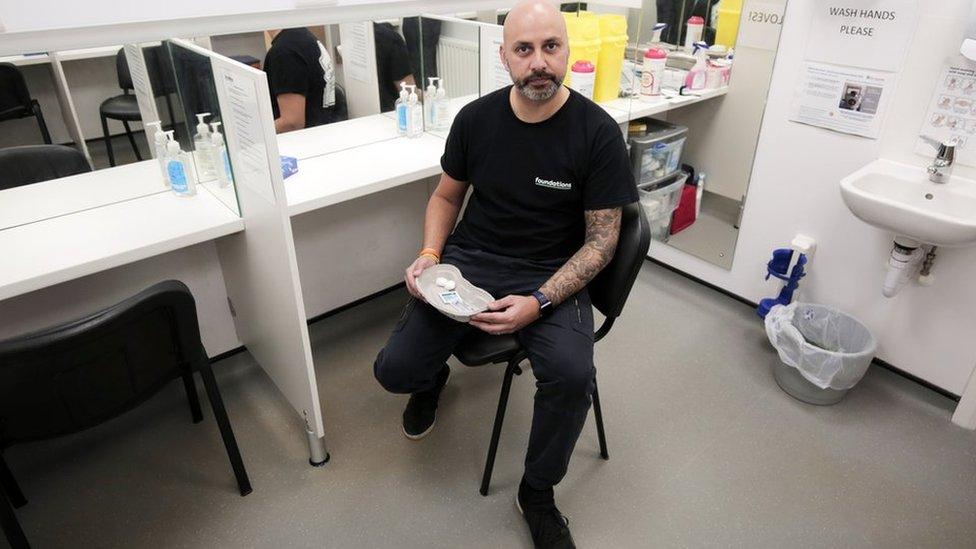Hartlepool: The converted van helping drug users exchange needles
- Published
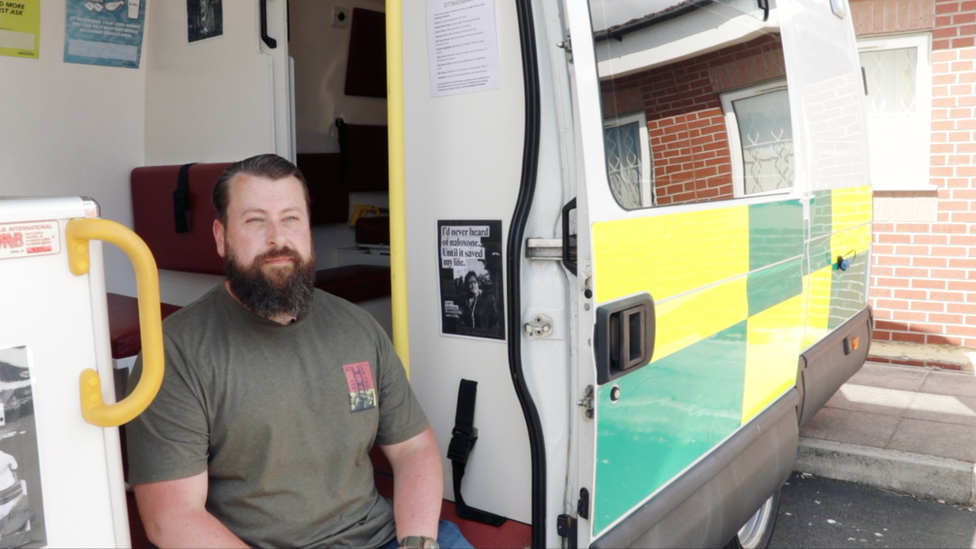
Darren Mobberley operates the mobile exchange for Foundations
Used needles are being returned in volumes "well above the national average" at a mobile exchange service in Hartlepool, the organisers have said.
Since September, a converted Red Cross vehicle has operated five days a week in the town. It drives around several established locations to meet drug users, and can be called out via telephone.
One user, who wished to remain anonymous, said the van had made his life "much, much easier".
"This is a good service. Really good," he said.
"I never have to reuse needles, I always come here and get new ones.
"I dispose of them here. This is better than getting rid of them down the sink or down a drain or something. It keeps people safe."
The man, who has been using drugs for "seven or eight years", had cycled to the van with used needles in a puncture-proof container.
'Want people to be safe'
He said the community was right to be concerned about drug litter, but added it was "a few bad people" who disposed of their injecting paraphernalia irresponsibly.
"You see needles in the street and stuff and it's no good. Especially if there's little kids around," he said.
"People always say people who use heroin are bad people but we're not all bad people. Some of us have got families, some of us work, we cause no trouble."
The service operates "a few hundred exchanges a month" and about 45-50% of the needles it gives out are returned after use, which is above the national average of 30-35%, the specialist GP practice which runs it, Foundations, said.
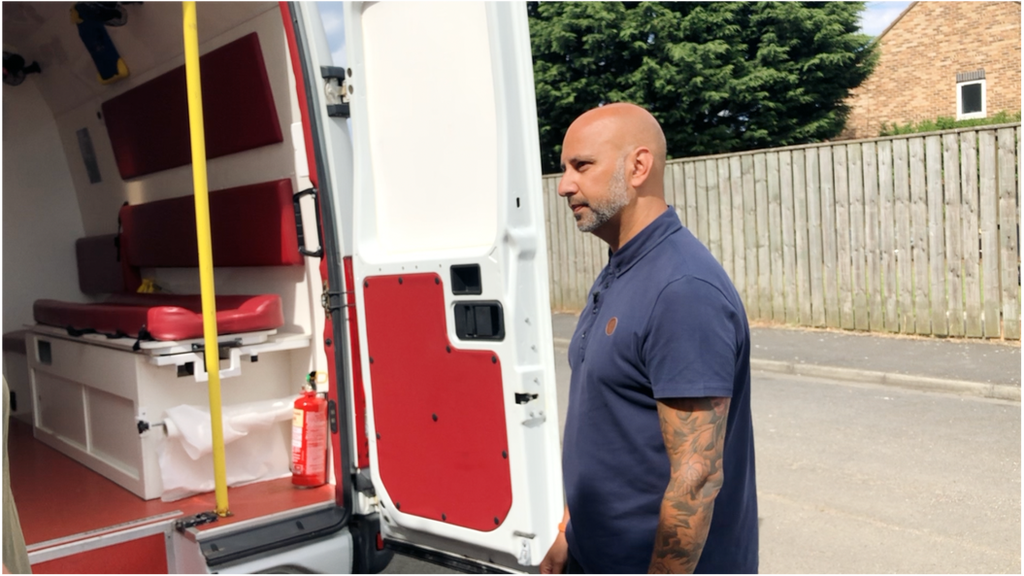
Danny Ahmed said he wanted to provide "a strong treatment offer" across the town
The group also runs England's only Heroin Assisted Treatment clinic in Middlesbrough, and this van is in partnership with Hartlepool Borough Council.
As well as confiscating and disposing of used needles, the van can distribute a range of injecting equipment, naloxone kits, contraception and refer people to treatment if requested.
Forty-six people in Hartlepool had drug-related deaths between 2017 and 2019. This was the second highest rate in the north-east of England behind Middlesbrough, and was more than double the national average.
Darren Mobberley has worked in harm reduction for 11 years and currently operates the mobile exchange for Foundations.
"It's here to prevent the passing on of bloodborne viruses," he told BBC Radio Tees.
"It stops people sharing and reusing equipment which has an impact on their health and stretches the NHS dealing with viruses or injection wounds.
"Predominantly we see opiate users in Hartlepool but we see people using amphetamines, cocaine, steroids. Pretty much any drug people can use, we have a set of assistance available to help them reduce if that's what they want to do.
"What I'm also trying to do is speak to the community, people who don't use drugs. I want to explain why this is a good idea.
"It stops people littering, it means people who want safe equipment can get it, if they want to go into treatment I can help, if they want naloxone I can give them it to save lives. We just want people to be safe."
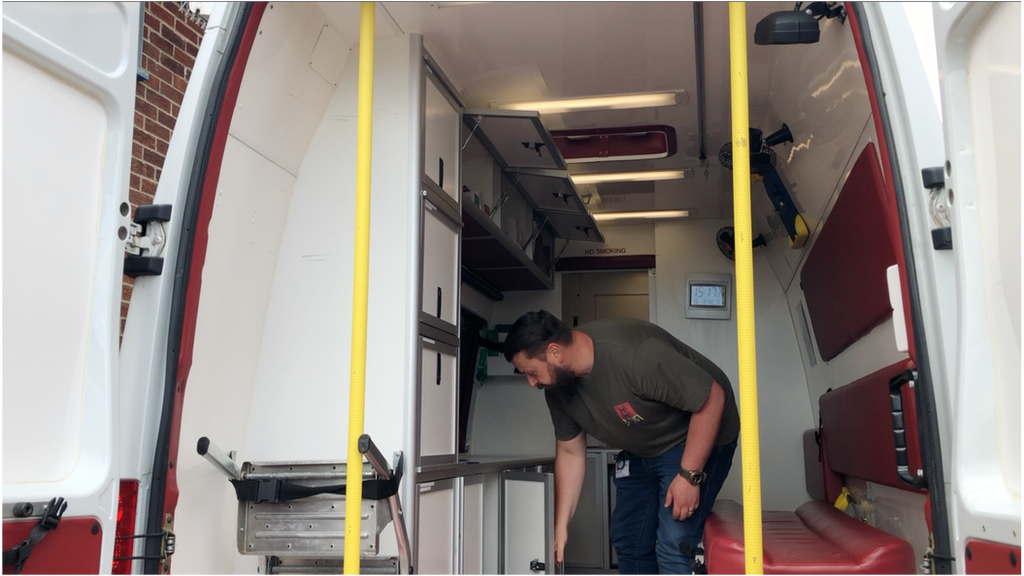
The van used to belong to the Red Cross
Foundations' clinical partner Danny Ahmed said his ambition, along with the council, was to develop "a strong treatment offer" across the town.
"This vehicle really helps to get people into treatment," he said.
"People can describe services as hard to reach but actually it's the services that are hard to penetrate. For us it's about taking harm reduction services out to the people who need them.
"Over the last decade there's been a dramatic reduction in funding for substance misuse services. It means things like needle exchanges have effectively been cut and have become one of many jobs for a pharmacist and we've lost that specialist knowledge.
"We really want to benefit the town's health and wellbeing and impact the communities by supporting substance users to stabilise their lives."
If you have been affected by the issues raised in this story contact the BBC Action Line

Follow BBC North East & Cumbria on Twitter, external, Facebook, external and Instagram, external. Send your story ideas to northeastandcumbria@bbc.co.uk, external.
Related topics
- Published17 April 2021
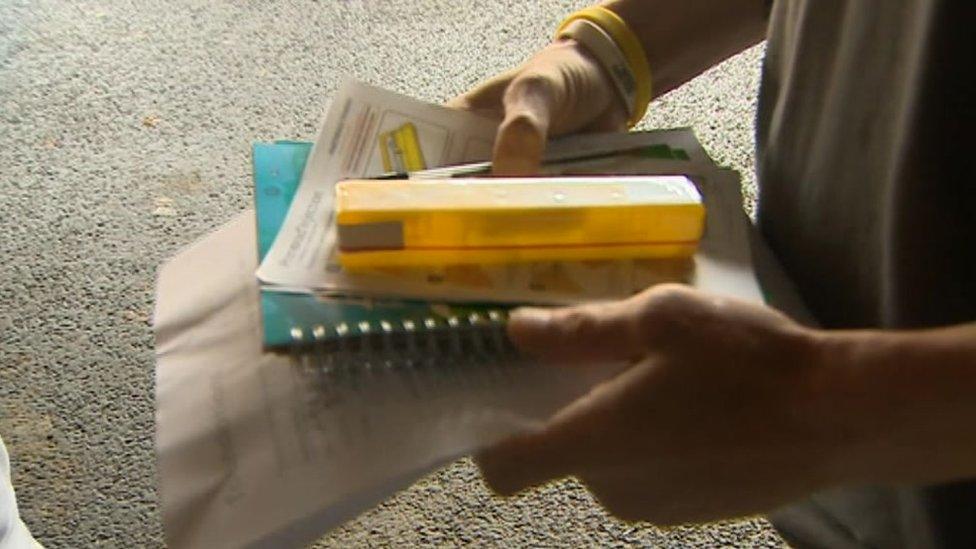
- Published24 February 2020
